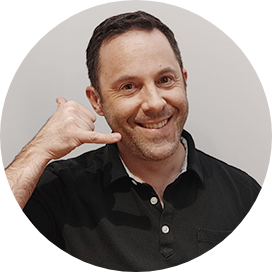In recent years, the urgency surrounding diversity, equity, and inclusion (DEI) efforts has grown exponentially. The COVID-19 pandemic and the heightened awareness of racial injustices have prompted many organizations and individuals to take action. However, it is crucial to recognize that rushing into DEI initiatives without a thoughtful approach can lead to unintended consequences and potentially exacerbate the very issues we seek to address.
In a conversation with Dominique Riviere, an expert in DEI work, we explored the concept of “slow your role” and the importance of striking a balance between urgency and thoughtful action. Dominique emphasized the need for organizations and individuals to be honest about their motivations, understand their limitations, and implement sustainable practices. Let’s delve deeper into these themes and their implications.
As always, tune into the ScaleHR Unmuted podcast to hear these insights directly from HR professionals! Visit our full backlog of episodes here.As the world becomes increasingly diverse and interconnected, organizations are recognizing the importance of inclusive leadership in creating a more equitable and inclusive workplace. In a recent interview with Gabby Zuniga, an expert in diversity, equity, and inclusion (DEI), we explored the concept of inclusive leadership and its significance in today’s business environment. Read ahead, and make sure to visit our podcast page for more insights on leadership and human resources!
Defining DEI in the Workplace
Diversity, Equity, and Inclusion (DEI) in the workplace is a comprehensive framework that focuses on creating a work environment that values and respects individuals from various backgrounds and experiences. It goes beyond mere representation and encompasses efforts to ensure that all employees not only feel included, supported, and have equal opportunities for success, but have access to resources that will help them explore their potential.
Diversity in the workplace refers to the variety of differences among people, including but not limited to race, ethnicity, gender, age, sexual orientation, religion, and disability. Embracing diversity means recognizing and appreciating these differences, and understanding that a diverse workforce brings a wealth of perspectives and experiences that can drive improvements in innovation and creativity.
Equity is about ensuring fair treatment and access to opportunities for all employees, regardless of their background. It involves identifying and rectifying systemic barriers that may prevent certain groups from advancing in their careers. This could include addressing wage gaps, providing equal access to professional development opportunities, and promoting policies that support work-life balance.
Inclusion is the practice of creating a workplace culture where everyone feels valued, respected, and has a sense of belonging. It goes beyond mere tolerance and encourages active participation and collaboration. An inclusive workplace fosters an environment where diverse perspectives are not only welcomed but actively sought out.
Organizations that prioritize DEI will see its immediate impact on employee engagement, productivity, and overall business success. Research consistently proves that diverse teams are more innovative and better equipped to solve complex problems with greater resiliency. Additionally, a diverse and inclusive workplace is crucial for attracting and retaining top talent in an increasingly global and interconnected world—both hybrid and in-person.
Implementing DEI initiatives involves more than rote policy changes; it requires a cultural shift within the organization. As Dominique will show us, leadership plays a pivotal role in setting the tone and modeling inclusive behavior. Training programs, mentorship opportunities, and affinity groups can also contribute to creating a more inclusive environment, resulting in greater development of your DEI vision.
Regular assessments and data collection are potential tools to track progress and identify areas for improvement. These strategies include monitoring diversity metrics, conducting employee surveys, and seeking feedback from underrepresented groups. Transparency about goals and progress fosters accountability and signals a commitment to continuous improvement.
DEI in the workplace is a multifaceted approach that recognizes, respects, and leverages the unique qualities each individual brings to the organization. By fostering diversity, promoting equity, and cultivating inclusion, businesses can create a dynamic and thriving workplace that not only benefits employees but also contributes to long-term organizational success.
Now that we understand the terms that guided this episode of Unmuted, let’s look at how an expert in the DEI field goes about addressing the implementation strategies that can transform your business.
Communicating Motivations Honestly
During our chat, Dominique highlighted the importance of being honest about why organizations and individuals engage in DEI work. It is crucial to move beyond performative actions and truly commit to making a positive impact. Dominique stated, “If you’re doing it for performative reasons… you need to do that hard work of being honest to say we don’t want to be part of the problem.”
This honesty requires introspection and a genuine desire to effect change. Organizations must examine their motivations and ensure they are driven by a sincere commitment to equity and inclusion, rather than a desire to appear virtuous or avoid negative perceptions. By acknowledging their true intentions, organizations can lay the foundation for meaningful and sustainable progress.
Understanding Your Limitations as an Employer
Another critical aspect of a thoughtful approach to DEI work is understanding the limitations within an organization. Dominique emphasized the need to be clear about the nature of the organization, its regulatory constraints, and its obligations to stakeholders. She stated, “Being very clear and doing a scan… around where you are, what you are legally bound to do… is essential.”
Different industries and sectors have unique challenges and constraints. For example, organizations in highly regulated sectors like finance and healthcare may face additional hurdles in implementing certain DEI initiatives. Understanding these limitations allows organizations to develop strategies that align with their specific context while still driving progress. Working with experts who have faced similar challenges in your field is an excellent way to navigate change successfully without making the same mistakes.
Learn how to implement employee well-being into your total rewards with our free guide.
Implementing Sustainable HR Practices
Rushing into DEI initiatives without adequate preparation and sustainable practices can lead to disappointment, disengagement, and even backlash in certain cases. Dominique highlighted the need to view DEI work as a marathon rather than a sprint. She stated, “When you rush, you don’t put in the systems, the practices, the knowledge, opportunities that you need to be able to sustain the work beyond that big sort of frenzied thing.”
Sustainability requires a long-term commitment to ongoing learning, adaptation, and improvement. Organizations must invest in building the necessary infrastructure, providing ongoing training and support, and fostering a culture of inclusivity. By taking a thoughtful and sustainable approach, organizations can avoid the pitfalls of short-term fixes and create lasting change.
If your processes aren’t scalable, there is a good chance you’re not thinking long-term enough about the topic at hand. Consider revisiting your strategies with an expert before committing to expensive and complicated policy renewals.
Implications and Potential Impact
The implications of rushing into DEI initiatives without a thoughtful approach are significant. Firstly, there is a risk of doing harm to employees from equity-deserving groups. When organizations create a sense of urgency and then fail to address the underlying issues, it can lead to disappointment and disengagement among those who are hopeful for change. This can further perpetuate inequities and hinder progress.
Secondly, rushing can open the door to backlash, both within and outside the organization. When organizations make changes without adequately preparing their employees and stakeholders, it can create resistance and even hostility. This can manifest as increased microaggressions, macroaggressions, and a hostile work environment. The media has already highlighted cases where racialized employees feel unsafe returning to the office due to the lack of preparedness in addressing DEI issues.
Lastly, rushing into DEI initiatives without sustainable practices undermines the long-term impact of the work. DEI is not a one-time event or a checkbox exercise; it requires ongoing commitment and investment. Organizations need to establish the necessary systems and practices to avoid losing momentum and reverting to the status quo.
Conclusion and Future Outlook
In conclusion, a thoughtful approach to DEI work is essential for creating meaningful and sustainable change. Organizations and individuals must be honest about their motivations, understand their limitations, and implement practices that support long-term progress. Rushing into DEI initiatives without careful consideration can lead to unintended consequences, including harm to employees, increased backlash, and a lack of sustainability.
As we move forward, organizations must prioritize DEI as a strategic imperative rather than a reactionary response. This requires a shift in mindset, a commitment to ongoing learning, and a willingness to address systemic issues. By embracing a thoughtful approach, organizations can create inclusive cultures, drive equitable outcomes, and contribute to a more just society.
The journey towards diversity, equity, and inclusion is not easy, but it is a journey worth taking. By slowing our role, we can ensure our actions are purposeful, impactful, and sustainable. Let us strive for a future where DEI is not just a buzzword but a fundamental aspect of living and working towards stronger communities.
To connect with ScaleHR about these topics and more, please contact us. Our team is dedicated to helping businesses better support their people so they can better perform altogether. When human and tech resources align, growth is never far behind.









